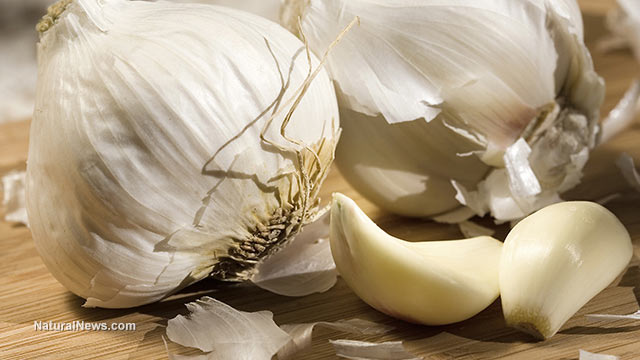Eating healthy nuts twice a week helps boost heart health and lowers heart attack risk: Study
08/10/2020 / By Virgilio Marin

A recent study has found that consuming nuts at least two times a week is linked to a 17 percent reduced risk of death from cardiovascular disease.
Heart disease is the leading cause of death not just in the United States but worldwide. The Centers for Disease Control and Prevention estimates that about 647,000 Americans die from heart disease annually. This means that one in every four deaths is due to heart disease.
The findings of the study, which were presented at the European Society of Cardiology (ESC) Congress 2019, demonstrate the importance of adding nuts to a healthy diet in order to prevent cardiac events, such as a heart attack.
“Nuts are a good source of unsaturated fat and contain little saturated fat. They also have protein, minerals, vitamins, fiber, phytosterols and polyphenols that benefit heart health,” said Dr. Noushin Mohammadifard, one of the authors of the study.
Eat nuts twice a week for a healthier heart
For their study, the researchers looked at the link between nut consumption and the risk of cardiovascular disease and death in the Iranian population. They considered coronary heart disease, stroke, total cardiovascular disease, all-cause mortality and death from cardiovascular disease as specific outcomes.
The researchers recruited 5,432 Iranians aged 35 and older who had no prior history of cardiovascular disease. They interviewed the participants every two years for the occurrence of cardiovascular conditions and death.
The researchers assessed the participants’ nut intake using a validated food frequency questionnaire. Walnuts, almonds, pistachios, hazelnuts and seeds were some of the nut varieties that appeared in the participants’ diet.
After a median 12-year follow-up, the researchers recorded a total of 751 cardiovascular events, 594 of which were due to coronary heart disease and 157 were related to stroke. Of these, 179 resulted in cardiovascular deaths while 458 corresponded to all-cause deaths.
The researchers found that eating nuts two or more times a week was linked to a 17 percent lower risk of cardiovascular death. This association remained consistent even after controlling for a range of variables, such as age, sex, education, smoking and physical activity. (Related: Go nuts for nuts: Long-term nut consumption can reduce your risk of obesity and reduce weight gain.)
However, Mohammadifard noted that nuts should be eaten raw and fresh as these are the healthiest. Raw unsaturated fats in stale nuts can be oxidized, making them harmful to human health.
Furthermore, the researchers cautioned that nuts should be eaten in moderation as they are high in calories. Nuts provide about 70 to 200 calories per ounce of serving. Although the study recommends increasing your nut intake, you should limit your consumption to moderate amounts. The ESC recommends consuming no more than 30 grams of unsalted nuts daily as part of a healthy diet.
What makes nuts heart-friendly?
Nuts benefit the heart in a variety of ways. Research suggests that these superfoods can help lower bad cholesterol and triglyceride levels. These two factors influence the formation of plaques in the arteries. Nuts have also been found to reduce inflammation and boost the health of blood vessels.
Scientists attribute the heart benefits of nuts to the nutrients and active compounds they contain. Studies show that nuts are rich in healthy unsaturated fats like omega-3 fatty acids, as well as vitamin E, all of which support heart health and function.
Nuts also contain plenty of fiber, which not only helps lower blood cholesterol levels, but also prevents overeating by promoting satiety. Dietary fiber also feeds the good bacteria in the gut, which helps improve digestion and strengthens immunity.
In addition, nuts naturally contain plant sterols, which are regarded as the best alternatives to statins. Statins are synthetic drugs used to lower bad cholesterol levels. Unlike statins, plant sterols have no known side effects and can be used even by pregnant women.
Nuts are some of the best foods you can eat to keep your heart healthy and functioning optimally. Add these superfoods to your daily diet to enjoy their benefits, but remember to eat them in moderation.
For more news about heart-healthy foods, visit Heart.news.
Sources include:
Tagged Under:
RECENT NEWS & ARTICLES
COPYRIGHT © 2017 SUPERFOODS NEWS



















